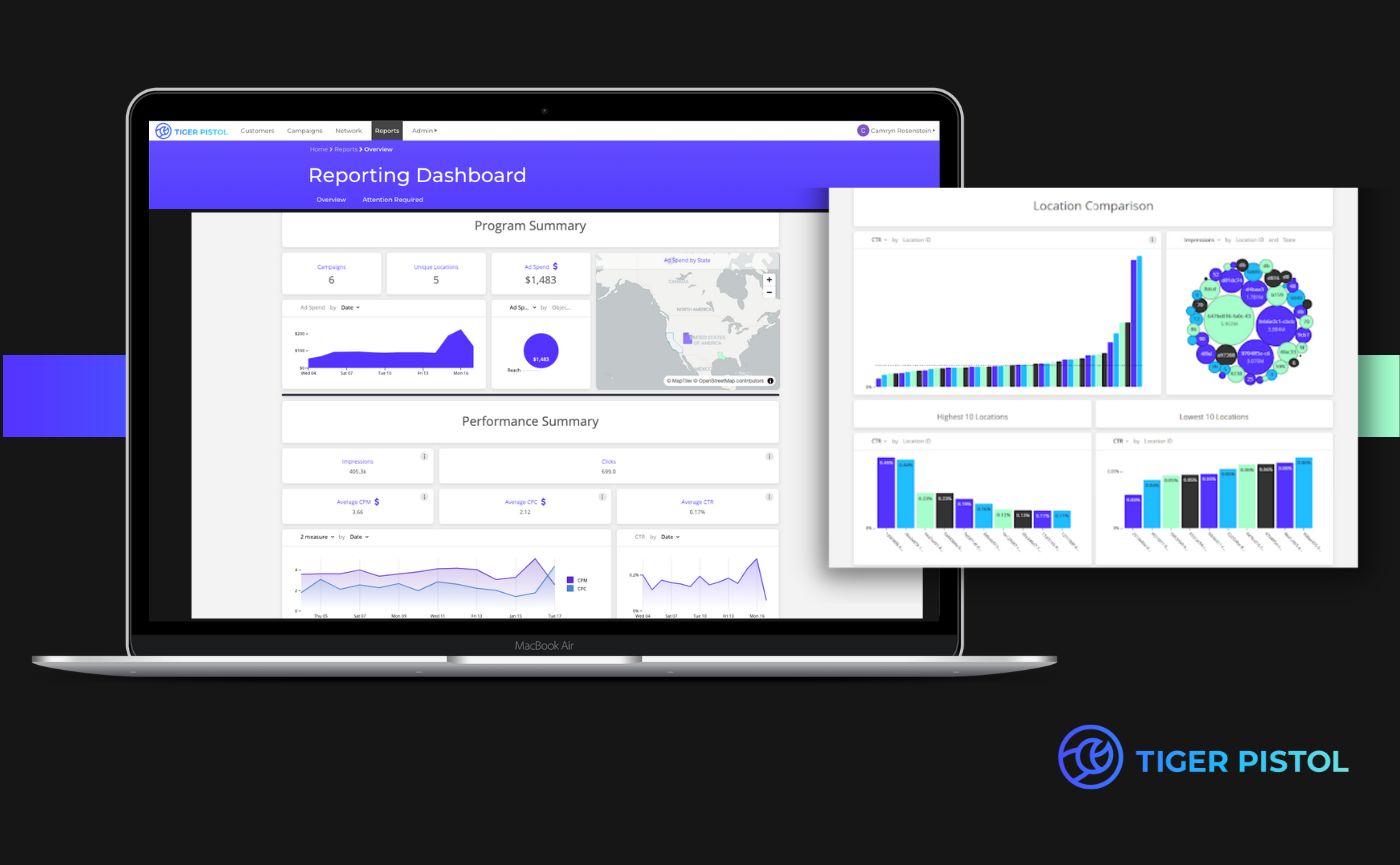Digiday Names Tiger Pistol “Best Social Marketing Platform” for the Third Time in Annual Technology Awards
Continuous innovation for companies that need localized campaign strategies at scale among top reasons for Tiger Pistol’s most recent win.
Tiger Pistol, the premier local advertising platform, received the 2022 Digiday Technology Award for Best Social Marketing Platform, marking the company’s third win of this prestigious industry award.
Third Digiday Technology Award Win for Tiger Pistol
“Our world-class team of social advertising and channel marketing experts has clearly created something unique in the world of social advertising,” said Paul Elliott, Tiger Pistol CEO. “This repeated recognition by Digiday further validates Tiger Pistol as the true industry innovator, and that our platform effectively solves issues plaguing modern marketers, including scale, localization, connecting partner ecosystems, and gathering the granular local data needed to inform decisions at the national level.”
Award-Winning Work with Franchise and QSR Brands
Digiday honored Tiger Pistol for its work with one of the largest franchise health and beauty companies to drive effective engagement and increase visits for its locations through localized social advertising. Tiger Pistol also received runner-up recognition for its work with one of the nation’s top quick serve restaurants (QSR) brands to power its national-to-local social advertising programs. Elliott said these honors solidify Tiger Pistol as the leader in the world of franchise advertising solutions.
Expanding Franchise Capabilities for Greater Impact
“In the last year, we’ve added new franchise advertising capabilities to our platform that address the delicate balance between the brand control needs of the franchise brand and the local campaign personalization desires of their franchisee,” said Elliott. “Franchisees want locally-relevant and easy-to-implement advertising that delivers on their business objectives; whether that’s driving foot traffic to their locations or recruiting campaigns that enable them to quickly advertise open positions, maximizing advertising efficiency and effectiveness for both the brand and their franchisees.”
Addressing Key Franchise Advertising Challenges
In addition to brand control and partner personalization, Tiger Pistol’s platform also addresses partner campaign visibility, advertising accessibility for non-marketers, and flexible funding models that allow the franchise brand or franchisees to fund their individual store-level campaigns or pay in aggregate across all their store locations. Finally, Tiger Pistol makes it possible for social campaigns to launch from the individual partner’s Facebook Business Page, either by the brand or partner.
Discover how Tiger Pistol can power your local advertising success.
Related Posts
Why Local Is the Strategy QSR Brands Can’t Afford to Ignore
Margins are shrinking. Competition is multiplying. And nearly 7 in 10 franchisees now name inflation and rising costs as their top challenge. But as operating expenses climb, diner behavior is pointing marketers to a clear path forward. Customers are still spending. They’re just spending differently. Diners Are Choosing Value, and They’re Finding It Online
Discover the Power of Location-Based Social Advertising with Tiger Pistol’s Advanced Reporting Dashboard
Tiger Pistol’s latest capability consolidates campaign performance across locations, delivering deeper campaign insights. During times of financial constraint, marketing budgets and the performance they drive, become more important than ever. According to eMarketer, 75% of marketers anticipate their budgets will be closely scrutinized this year. As a resu
The Growing Importance of Loyalty Programs in QSRs: Challenges and Opportunities
Loyalty programs have become essential for quick-service restaurants (QSRs) to maintain customer relationships, drive repeat visits, and boost sales. With 81% of Americans holding a QSR loyalty membership and 63% for full-service restaurants, the prevalence of loyalty programs continues to grow. However, while the widespread adoption of these programs demonstra
Driving Consistent Value: Success Stories from Franchise Marketers
Franchises across industries are facing unprecedented challenges as inflation continues to drive up operational costs. According to the 2024 IFA Annual Franchise Report, nearly nine in ten franchisees are feeling the pressure from rising expenses, with four in five reporting a decline in business earnings. As labor, inventory, and marketing costs soar, franchis





